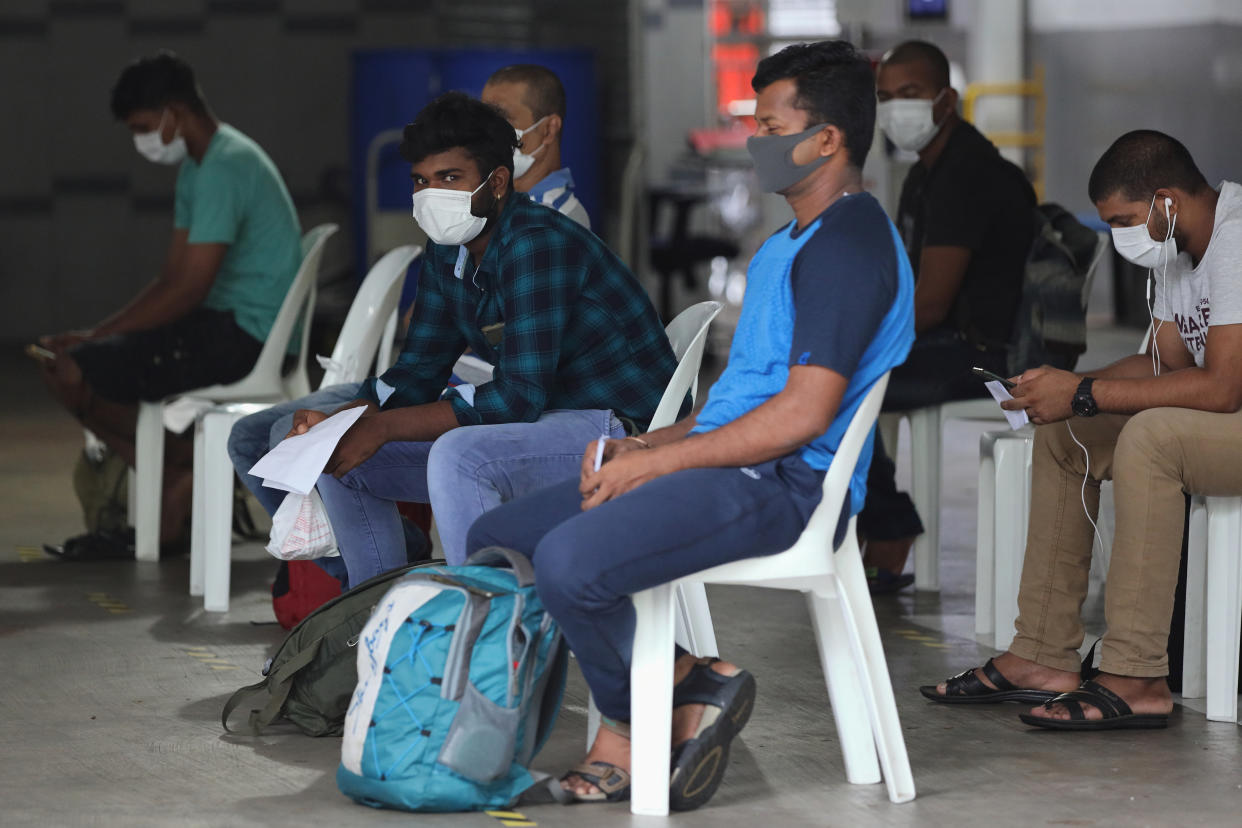Singapore is 'top choice' for migrant workers, says contractors association chief

SINGAPORE — The Singapore government should consider its next moves on the issue of migrant workers “cautiously”, said the Singapore Contractors Association Ltd (SCAL) on Wednesday (27 May).
The statement by SCAL president Ng Yek Meng was in response to what he called “unfair comments” regarding the treatment of migrant workers here.
Efforts to take care of the workers have been misrepresented and “may not take into account the full scope of and challenges faced within our industry”, Ng said.
“We hope that the conditions of the construction industry will be viewed with fairness and without prejudice, taking into account the full context of Singapore's landscape, economy and population demographic,” he said.
SCAL is the official representative body of the country’s construction industry, with about 3,000 members.
The recent outbreak of COVID-19 within the migrant worker community had placed scrutiny on the workers’ housing conditions, Ng said. “Though we acknowledge that the housing conditions here can be improved, by comparison, they are one of the best in the region.”
SCAL “strongly disapproves of employers or dorm operators who do not provide proper accommodation, working conditions, and welfare for their workers”.
‘Top choice’ for migrant workers
Ng claimed that Singapore is a “top choice” for migrant workers.
“Workers here earn significantly more than they would in their home countries. For some, their annual salary in Singapore is 10 times more than what they would typically receive in their home country,” said Ng. Singapore provides the workers with good working opportunities and stable living conditions, according to him.
Ng also claimed that the majority of workers choose to stay on in Singapore after completing their contracts, with many staying for over 10 years and encouraging their family members to join them here.
“Many employers encourage their workers to take on educational courses and training, on top of providing medical benefits and accommodation. Workers with work experience in Singapore are much sought after in other countries such as Australia and New Zealand,” said Ng.
Singapore employers also have a good reputation, while the country is known for being safe as well as providing workers protection under the law.
“Throughout the COVID-19 outbreak, despite disruptions and challenges to the construction industry, (workers) have been paid, food have been provided for those under quarantine, and those who needed medical attention have been attended to promptly,” said Ng.
Employers are legally compelled to treat their workers fairly and that it is also in their interests to ensure their workers are “kept happy, healthy, motivated and productive”.
Migrant workers still needed
Regarding the calls for reducing the number of migrant workers, Ng said the country is not ready for such a move and warned that it would have a “corresponding impact” on the economy and on the livelihoods of Singaporeans.
“These workers contribute significantly to Singapore's construction industry and development. They support the creation of our housing, transport infrastructure and overall landscape,” he said.
With around 300,000 migrant workers in the construction sector, Ng said they form the industry’s “backbone” and that, given the high demand for them, any shortfall in numbers would be difficult to make up for.
“Singapore is a small country, with an ageing population. (Migrant workers) take on many of the labour-intensive jobs that Singaporeans prefer not to do,” he said.
While the government maintains a dependency ratio to ensure companies employ more locals, Ng said that it is not always easy for companies to find Singaporeans – 100,000 of whom currently work in the construction industry – to fill these roles.
He also observed that a reduction in the migrant worker pool would lead to a rise in construction costs, which would have a trickle-down effect, leading to a rise in housing prices. It would also lead to delay in the construction of new HDB flats.
Ng also noted that the number of foreign workers could be reduced when the number of construction projects and developments decrease.
“Singapore is not yet in a position to easily do away with foreign manpower. As technology improves and the industry here takes on more advanced resources, we will work to change the way we build... But this will take time,” he said.
Stay in the know on-the-go: Join Yahoo Singapore's Telegram channel at http://t.me/YahooSingapore
More Singapore stories:
COVID-19: Man breached SHN to buy chicken rice, cigarettes
Man who broke into flat to shower, used stolen pants as towel, jailed 5 months
COVID-19: Security officer jailed 6 weeks for breaching SHN to go to work
HSA flags two products which may pose serious health risks
COVID-19: No in-person applications for P1 registration exercise this year
Taxi driver jailed 4 months for posting false message about food centres closing



